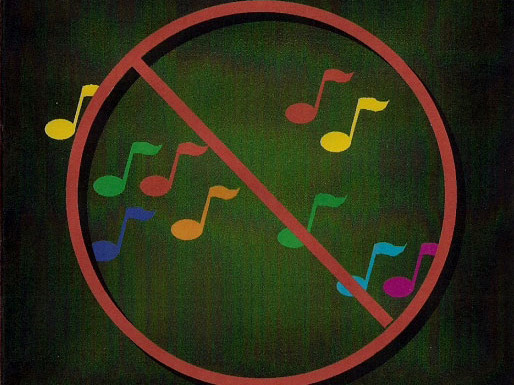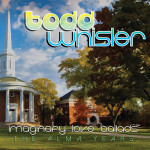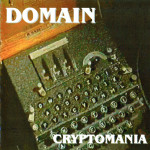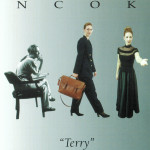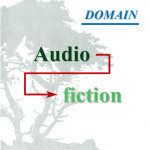Album Notes – No Concept Of Key
No Concept Of Key – recorded November 1999 – March 2000
I spent a good 6 months mulling over Terry, appreciating both how incredible a feeling it was to hear these songs properly recorded and performed and realizing mistakes I had made in constructing the album. I knew I wanted to record another album. I had 8 or 9 songs that predated Terry that were in the same vein – long, complicated songs of regret and sorrow. I also had about 8 songs that were nearly the antithesis – three to four minute songs that had been written in a matter of hours or even minutes rather than weeks or months. Although in some abstract sense I “liked” the earlier epics of anguish more, I was in no rush to put myself through the wringer Terry had proven to be. Plus, I wanted to apply some lessons learned. Lesson #1 – involve Leyth more. Once I committed to No Concept Of Key, I played Leyth all the demos before we even began to record and incorporated as many of his suggestions for improving it as he saw fit to offer. Lesson #2 – find a suitable bass player. Jay Trapp had done his best but this sort of music wasn’t an exact fit for him. Jim Pavett had just recently wrapped up working with Barry Sparks, a musician whose work I knew because I had an album he had played on. “Barry isn’t going to want to work on my stuff!” I remember thinking. Jim sent Barry a copy of Terry and in fact he was interested in that kind of music. Barry single handedly fulfilled all my wishes for what the bass should or could do in my music and I’ve never worked with another bassist since. Lastly, lesson #3 settle on a single vocalist. The person who had done the most with least was Tony Kishman and I was thrilled when he consented to sing all 8 songs on the upcoming project.
The session for No Concept Of Key were a lot of fun. Perhaps a fourth lesson learned was “let the musicians play their instruments” and I offered as little guidance on what to play or how to play it as possible and found Rich Katz had a whole hell of a lot more to offer as an arranger than I had allowed him on Terry. Jim and Barry needed no coaching, neither did Leyth and when Tony began requested lyrical rewrites, I allowed them insofar as they didn’t veer too far off the original intent of the song. As a result, we really had a blast making this album. Neither Tony nor Barry heard any of the material prior to entering the studio. With bass, that isn’t so much a problem but a lead singer has to be more invested in the song than just a 2 hour recording session. The feedback I got on this album was overwhelmingly negative and Tony bore the brunt of the criticism. Given what he had to work with and how quickly he got the final vocal recorded, I think he did an amazing job but listeners aren’t aware of how the album was made – they judge (and can only be expected to judge) what they hear. And the lead vocals weren’t consistent. Some of the material I think Tony connected with strongly and sang with both conviction and heart. But some of the other songs I think he did not connect with to the detriment of the song.
This album is really five pairs of songs. No Need For Words and Gypped Again take issue with the music industry, bands who don’t know how to put their albums in order and fans who don’t know the difference. Beyond Andromeda and Waiting are wistful songs about girls I desired in which far less agony is injected than any song on Terry. Princess and Three Of A Kind are songs written in ten minutes or less about sex. Alone In The Garden and Soap Suds & Cornflakes are about social issues; divorce and gun control, specifically. And then two instrumentals.
In many ways, No Concept Of Key is a superior collection of songs to Terry. It has an opener and a closer, it’s a better recording, the songs don’t suffer from compositional meanderings, the keyboard work is excellent and the bass is unreal. But what Terry lacked in execution, it made up for with ambition and my friends, especially the ones who were musicians themselves, sensed the lowered bar and reacted against it. I view both albums as imperfect gems that are better left as they are – steps in the process toward figuring out who and what I was as a songwriter and what I really wanted to achieve in my albums.
- Words/No Need for Words. The last song written for No Concept Of Key is 99% Leyth Mulla, 1% me. It’s an interesting albeit misguided decision to start your album off by insulting your audience. “Nobody knows what songs are about.” I remember Jim specifically played each verse in homage to a different drummer or a different drumming approach. Unfortunately, the only one I remember is the second verse pays homage to Scott Rockenfield of Queensryche. We deliberately panned Leyth’s leads alternately out of the right and left channels. This is one of the songs I feel Tony Kishman related to and sang with conviction.
- Beyond Andromeda. This was a song written about my friend and coworker Monica who was the last girl I fell hopelessly in love with. In 1997, we walked out together from work and it was raining. Monica grabbed my hand and we skipped to the parking lot together through the puddles. It was the sort of childish, innocent, grade school level connection that just resonated with me. Later, after it was clear that was just one isolated incident of connection, I reflected on what it was like to hold her hand and missed that innocent act. There’s a clear musical reference to the song Ashes To Ashes by David Bowie in this song. The song was originally titled Miss Monica but I changed it so the reference to her was more obscure. Lyrically, I attempt to compare her to a galaxy – as beautiful as the stars themselves but millions of miles away and unobtainable.
- Princess. I drove home from work one day and there was this very pretty girl in a white car next to me for some distance on the freeway. I made up a whole song about her basically dwelling on my superficial desire for her. I do like the harmony 12 string guitars (one was recorded with a microphone, the other was an electric 12 string guitar that we plugged directly into the mixing board) and Rich’s and Leyth’s trading solos. I remember in the scratch track I forgot how to play the bridge and just settled for a generic C to G change. Then suddenly while recording the actual rhythm guitars, I remembered it was a straight descending minor chord change. When Barry heard it, he was relieved as the correct bridge was a lot more interesting musically.
- Alone in the Garden. Originally written infidelity, the song morphed due to a musical rewrite by Leyth and a lyrical rewrite by Tony. Tony had gotten divorced a year or two earlier and directed the song more towards the end of a marriage rather than what caused it to fail. What always strikes me about this song is the end when we’re all playing furiously fast and loudly and it’s Rich’s moderately paced piano that stops utter chaos from descending. Then the song gradually deconstructs until it’s just my guitar and Jim’s cymbals. This song is a highlight on the album for me.
- Memories of Monica. Sometime in 1998, my friend Jeanie, Monica and I all had lunch. Monica’s eyes were twinkling as I engaged them – telling jokes, singing little songs, just feeling alive and loved for the first time in my life. Little did I know Monica’s new boyfriend Doug was sitting right behind me and he was causing her lovestruck gaze, not me. But at least for an afternoon I knew what it was like to have someone who you think is great return the sentiment. This song ensued – a musical depiction of happiness. It’s just undercut by a slight visit to a minor chord because although I knew what it would feel like to have Monica admire me, she wasn’t mine.
- Soap Suds & Cornflakes. One piece of advice I got from my musician friends was to incorporate more input from other writers into my lyrics to make them more suggestive and less “preachy.” I used that here, leveraging a conversation I had with my friend Paul and Leyth himself who provided the key verse “Bloodshed and headlines make such good friends” and rhyming it with “Compassion for sale on CNN.” Leyth also suggested changing the time signature from 4/4 to 3/4 time and slowing it down. I’m always struck by Barry’s bassline in the bridge where he’s playing in a major scale over a minor key chord change. Lyrically, this song drew inspiration from what seemed to me to be a plethora of senseless shootings in Los Angeles and Denver in 1999, including the one at Columbine high school.
- Waiting. I was a member of a bowling league in 1996 and the couple I bowled with, Dean and Joy, invited their adult single mom daughter Lisa to come to bowling, probably to meet me. Lisa liked me and implored me that first night she met me to stay with her, hang out longer. She even took my hand in hers. My fear of whatever surfaced and I had to get out of there. Driving home, I knew I could write a song about the experience but didn’t want to write. I wanted to try to date her. Unfortunately, he who hesitates is lost and although she continued to attend sessions, she was distant – probably justifiably feeling rejection after more or less throwing herself at me and being rejected. After making any kind of small talk with her became impossible, I relented and wrote this song. Even when an available woman is dropped in my lap, I found ways not to seize the moment. Rich, who always makes my guitar parts sound tons better on his synthesizer, was just playing the bridge on his synth, rehearsing it, and it captivated me. I decided on the spot to open the song with him rather than me. During mixing, we decided to drop the rhythm guitars and bass out in the “Do you really think?” section so it’s just Tony’s singing, Jim’s drumming and Rich’s keyboards. It made it stand out more. I also recall on my demo going through a series of chords to change from C major to E major and resolve the song musically. When it came to recording, Jim’s voice chimed into my headphones, “You don’t need all those other chords. Just end it there.”
- Three of a Kind. Walking to the mailbox in my apartment complex one hot August day in 1996, I espied three absolutely gorgeous young women hanging out by the swimming pool. The whole walk back all I could think about is how great it would be to go hang out with them. However, instead I wrote a song about the three of them. Tony rewrote this lyric significantly and while some of it works better than what I had “Skin so soft tonight/love is in the air” some of the other lines feel somewhat abstract to me. It was my plan to have Rich solo over the major key sections in the midsection and to counter by having Leyth solo over the minor key passages. In the original demo, I played a little figure on the guitar that Jim mimicked in his drum track. When I went to record the formal rhythm guitars, that figure just didn’t come as easily as it had on my demo. Jim was somewhat exasperated with me and even though I added it as an overdub, it just never flowed the way it was supposed to.
- No Concept of Key. This song actually began with a theme you don’t hear until nearly a minute into the song. It’s a funny process whereby I decide how a song is supposed to start and that theme didn’t suggest an opening or introductory theme. The theme I ended up writing was too technically challenging for me to pull off but fortunately Jim and Barry were able to cover for me and I stuck just to whole note strums of the chords. I was fiddling around with the section that’s in off time, playing it in 4/4 time and it just didn’t flow correctly. It felt like it sat in place for an eighth note until the beat rolled over. I took a nap and after awakening, realized I should play it in 7/8 time rather than 4/4. The natural musical phrase is a 5 count and I stuck a quarter note onto the end to give it a pause. That equaled seven beats. Unfortunately, the very next phrase was written in 4/4 and flowed better. I found a have a rule – in-between musical sections, you have to keep at least 2 of the 3 elements of any phrase: timbre (which changed), key (which changed) or time signature (which changed). I knew I wanted to switch from distorted electric guitars to acoustic and I knew I wanted to change scales from A to B so I felt I had to rewrite the section in 7/8 so we had consistency of beat. After the solo is done, then it switches to G major and 4/4 time but since the instrumental voicing stays consistent, I didn’t have a problem with it. One thing that really stands out to me about this 6 minute instrumental is Barry’s bass solo. What is on the song is largely an improvisation as I called out the chords to Barry and he adjusted what he was playing to match the scale. It includes a false harmonic on a bass guitar, something I’d never seen done before. As we recorded, we really struggled with what to do during the ending passages. Leyth tried to solo over it but it really didn’t talk to him. After a few aborted attempts, Jim asked me to go in and try and my attempts were so incompetent, Leyth replaced me and knocked it out in two takes. The trick was to think of the guitar solo not as a guitar solo but as a vocal. Fewer notes!
- Gypped Again. This was the second to last song written for the album. After Leyth heard the demo tapes, he commented that not one of the songs he’d heard would make a suitable opener or closer. I therefore tasked him with writing both. I did have an idea for the closer – it had to do with listening to the entire album and not hearing a closer anywhere so this last track had better be a viable closing song or the listener will have been cheated (or gypped). Leyth took that idea and ran with it. We cracked each other up writing the lyrics. I’d say something like, “This lack of faith you have in us,” and he’d respond without thinking, “Is justified to me!” Over dinner one night, we were discussing how bands gyp their listeners and I said, “It’s been many times before that a band has lost its way and the fools who bought that drivel…” To which Leyth responded without hesitation, “Said they liked it, anyway.” This amused us no end. As part of “gypping” the listener, I went into the vocal booth and attempted to double Tony’s lead vocal. You can hear a completely off key companion vocal in the second verse. To my credit, I did a much more creditable job in the third and final verse but the point is made. At the end of the song, Jim, Leyth and I , arm in arm, yelled/sang the “We won’t gyp you again!” which Leyth complimented with some suitably noisy, out of key whammy bar nonsense. Consider yourself gypped.


